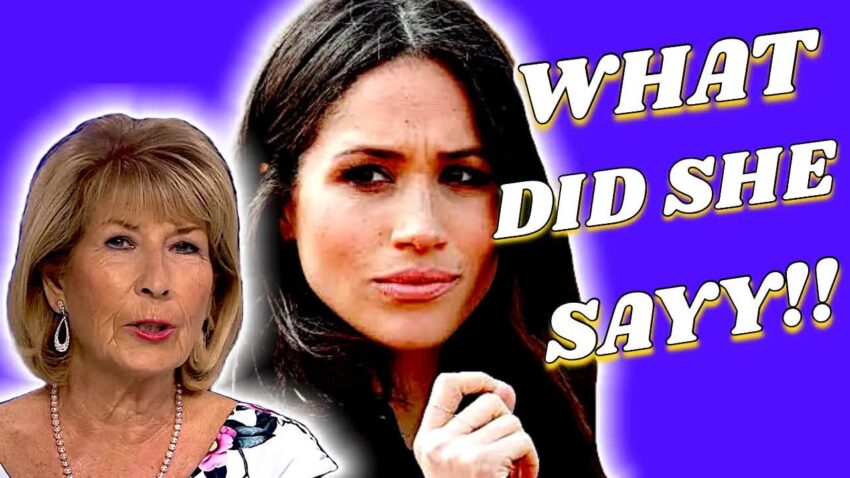In an era where sensationalism often overshadows truth, the narrative surrounding Prince Harry and Meghan Markle continues to evolve, raising pressing questions about their motives and the media’s influence on public perception.
The couple’s exit from royal duties and their new life in Montecito, California, have been scrutinized intensely, leading to a myriad of interpretations that often stray from reality.
Recently, publications like People Magazine have highlighted a purported rift between the Sussexes and the royal family, particularly focusing on King Charles.
A cover story from three weeks ago delved into Harry’s strained relationship with his father, suggesting that ongoing legal battles over security while visiting the UK stem from a lack of support from Charles.
This portrayal positions the king as a controlling figure, manipulating Harry’s access to his family and homeland through security measures, which paints a disheartening picture of their relationship.
The article also included commentary from a former employee of the Sussexes’ Archewell Foundation, indicating that while Meghan stands firmly by Harry during these legal challenges, she wishes he could find a way to alleviate the stress they bring.
This duality presents Meghan as a supportive partner burdened by the weight of her husband’s struggles, adding layers to the media’s depiction of her character.
However, the media has taken this narrative further, interpreting Meghan’s support for Harry as a suggestion that he should sever ties with the royal family.
Critics argue that this interpretation misrepresents Meghan’s intentions, creating an artificial divide between the couple and the monarchy.
By framing Meghan as the one pushing Harry to move on, the media shifts focus away from Charles’ actions, oversimplifying a complex situation and vilifying Meghan in the process.
Royal commentator Jenny Bond has weighed in, commending Meghan for encouraging Harry to leave the past behind.
While her comments aim to promote emotional health, they also imply that Harry’s lingering dissatisfaction is a flaw.
This kind of duality in commentary reflects a broader trend in media narratives that often oversimplify intricate emotional dynamics, potentially diminishing the legitimacy of Harry’s feelings.
Harry’s memoir, “Spare,” provides a contrasting perspective to the media’s portrayal.
In it, he shares a sense of nostalgia for his previous family life and the connections he once cherished.
This contradiction underscores the complexity of Harry’s emotions, showcasing the challenges he faces as he tries to reconcile his past with his present.
The relentless media scrutiny can be suffocating for both Harry and Meghan.
The narrative that they seek privacy while simultaneously engaging in legal disputes creates a paradox that the couple must navigate.
This contradiction is often exploited to paint them negatively, suggesting hypocrisy in their actions and amplifying feelings of isolation and frustration.
At the core of this ongoing saga lies the contentious issue of security.
Harry’s legal battle regarding safety isn’t just about personal protection; it symbolizes a larger struggle against a system he perceives as inadequate in safeguarding his family.
The media’s framing of this issue as a personal failing rather than a legitimate concern trivializes the genuine threats they face.
Royal experts like Jenny Bond play a pivotal role in shaping public opinion, but their insights can sometimes perpetuate misleading narratives.
By framing Meghan’s encouragement for Harry to move on as a strength, Bond inadvertently casts Harry’s struggles as weaknesses, overlooking the complexities of mental health and the emotional toll of public life.
The misrepresentation of Harry and Meghan’s intentions can create real-world consequences, straining their relationships with the royal family and alienating them from the public.
The media’s tendency to sensationalize their story often eclipses the couple’s genuine efforts to establish a new life, trapping them in a cycle of negativity that forces them to respond to false narratives.
Despite the media’s portrayal of Harry as eager to cut ties with his family, there is a clear yearning for connection.
Friends close to Harry have noted his dissatisfaction with the current state of affairs, revealing that he misses the admiration and support he once enjoyed in the UK.
This longing complicates the narrative that he is ready to abandon his past entirely.
The overarching narrative suggests that King Charles is wielding his power to control Harry’s access to the royal family, casting him as the villain in this tale.
However, this portrayal lacks nuance, failing to capture the complexities of their relationship, which is steeped in historical context and emotional baggage.
As Meghan and Harry continue to carve out their path in Montecito, the media’s narratives are unlikely to fade.
Their desire for independence is frequently met with skepticism, particularly from royal commentators who may not fully grasp their motivations.
The pressure to meet public expectations can lead to feelings of inadequacy and frustration, complicating their quest for peace and happiness.
In today’s digital landscape, social media plays a significant role in shaping public perception.
The narratives surrounding the Sussexes are amplified on platforms like Twitter and Instagram, creating echo chambers where misinformation thrives.
As the couple attempts to control their narrative, they often face resistance, caught in a relentless cycle of speculation and judgment.
The importance of mental health amidst this whirlwind of public scrutiny cannot be overstated.
Both Harry and Meghan have openly discussed their struggles, and the media’s portrayal of them as merely seeking attention undermines the very real challenges they face.
Empathy and understanding are crucial when examining their story, recognizing the toll that public life can impose on individuals.
Family dynamics are rarely straightforward, and the relationship between Harry and Charles exemplifies this complexity.
The media’s portrayal often lacks the depth needed to understand the nuances at play, as both men navigate their emotional landscapes shaped by personal experiences and expectations.
The monarchy itself is undergoing transformation, and the narratives surrounding Meghan and Harry reflect broader societal changes that could ultimately redefine its relevance in the modern world.
